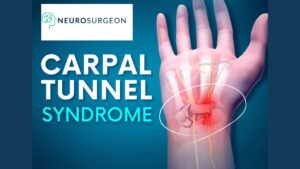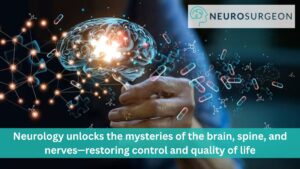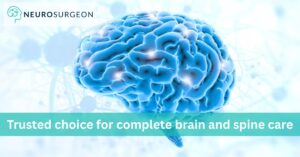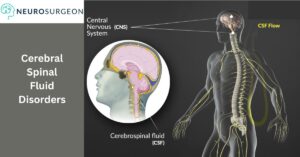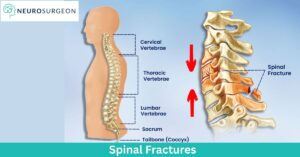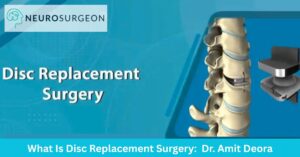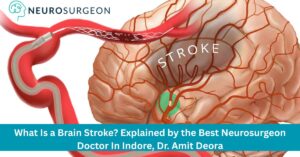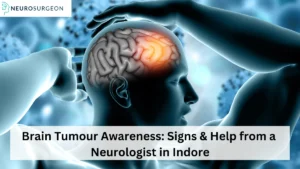Do you frequently experience intense, debilitating headaches that disrupt your daily activities and quality of life? If over-the-counter medications provide little relief or your headaches are increasing in frequency, you may need to consult a Neurologist in Indore. A neurologist is a physician who specializes in nervous system disorders, including the brain, spinal cord, and nerves. They train to properly diagnose the underlying cause of your headaches and determine an effective treatment plan.
Table of Contents
ToggleWhat Causes Headaches?
Headaches can range from mild to severe and may be caused by various factors. To determine whether you need to see a Neurosurgeon Near Me for frequent or intense headaches, it is essential to understand the underlying causes.
Tension Headaches
The most common type of headache is a Tension Headache. These are often caused by stress, anxiety, eye strain, or poor posture. Tension headaches typically feel like a dull ache or pressure around the head, especially the back of the neck or temples. Over-the-counter pain relievers are usually effective for relieving tension headaches. If tension headaches become chronic or severe, a Neurologist in Indore may be able to provide preventative treatment.
Migraine Headaches
Migraine Headaches are moderate to severe headaches often described as intense throbbing pain, usually on one side of the head. Migraines can last for hours or days and are frequently accompanied by nausea or sensitivity to light and sound. The exact cause of migraines is unknown but may be related to changes in brain chemistry. Prescription medication from a neurologist is often required to prevent and treat migraine headaches.
Other Causes
Other potential causes of frequent or severe headaches include:
•Head Trauma or Injury: Head injuries can trigger headaches, especially if there are signs of a concussion. See a Best Neurosurgeon Doctor In Indore right away for a proper diagnosis and treatment.
•Medication Overuse: Over-the-counter pain relievers too frequently can lead to medication overuse headaches. Reducing or stopping the overused medication may help relieve headache pain.
•Underlying Conditions: Headaches can sometimes be a symptom of an underlying condition like meningitis, encephalitis, stroke, or aneurysm. See a Neurosurgeon Near Me immediately if your headache is accompanied by fever, numbness, weakness, or vision/speech problems.
Types of Headaches
There are many different types and causes of headaches, such as migraine, tension-type, cluster, sinus, and hypnic headaches. Medication overuse can also lead to a headache when a person stops using pain relief or other drugs after using them for some time.
Tension Headaches
Tension headaches are the most common type and feel like a tightening band around the head. They are often caused by stress, anxiety, depression, or poor posture.
Migraine Headaches
Migraines are severe, throbbing headaches that usually affect one side of the head. They can be accompanied by nausea, vomiting, and sensitivity to light or sound.
Cluster Headaches
Cluster headaches are sharp, burning headaches that occur in clusters over weeks or months, followed by remission periods. They usually awaken you from sleep and the pain is often centered around one eye.
Exertional Headache
Exertional Headache are usually very short-lived but can sometimes last up to 2 days. They present as a throbbing pain throughout the head and are more common in those with a family history of migraine.
Hypnic Headaches
A hypnic headache is a rare condition that usually begins when people are in their 50s, but it can start sooner. People also refer to them as “alarm clock” headaches, and they wake individuals during the night.

When to See a Neurologist In Indore for Headaches
You should schedule an appointment with a Best Neurologist In Indore if:
- Your headaches are frequent or intense. Get headaches over 15 days per month or are painful enough to disrupt your daily activities.
- Over-the-counter or prescription medications are not helping. If you have tried common pain relievers to no avail, a Best Neurosurgeon Doctor In Indore may be able to prescribe more vital medicines or alternative therapies.
- You experience additional symptoms. Headaches accompanied by fever, stiff neck, confusion, double vision, weakness, numbness, or difficulty speaking can indicate a more severe condition that requires prompt medical attention.
- You have risk factors for certain headache types. If you are over 50, have a family history of brain aneurysms or strokes, or have high blood pressure or heart disease, you are at higher risk of headaches caused by vascular problems.
- Your headaches are worsening or changing. Any significant changes in your headaches’ frequency, duration, or severity warrant evaluation by a neurologist. New or different headache patterns can indicate an underlying condition that may require diagnosis and treatment.
If your headaches significantly impact your life, don’t hesitate to call Neurosurgeon Indore for an expert opinion and customized management of your condition.
Medications for Headache Relief
If you are experiencing frequent or severe headaches, consulting with a neurologist may be a good idea. They can determine the underlying cause of your headaches and recommend an appropriate treatment plan.
Diagnosing the Headache Type
The first step is to get an accurate diagnosis of your headache type. The Neurologist in Indore will review your medical history and symptoms to determine if it is a migraine, tension headache, cluster headache, or other type. They may order medical tests like MRIs or CT scans if needed. An accurate diagnosis is critical to developing an effective treatment plan.
Medication Options
Medications can help prevent or relieve the pain of many common headache types. The neurologist may prescribe:
- Pain relievers like ibuprofen, naproxen, or acetaminophen. For migraines, they may recommend triptans like sumatriptan.
- Preventive medications such as beta-blockers, anti-seizure drugs, or antidepressants to reduce headache frequency.
- Injectable medications for severe migraine or cluster headaches.
- Opioid pain medications in limited circumstances. Opioids can be addictive, so other options are usually tried first.
- Anti-nausea drugs if headaches are accompanied by nausea or vomiting.
- Lifestyle changes and non-drug treatments, such as reducing stress, improving sleep, limiting headache triggers, and physical therapy or massage, may also be recommended.
- For chronic daily headaches, a combination of preventive medications and non-drug treatments is often the most effective. Finding the right balance can take time and patience.
Conclusion
In conclusion, while most headaches are not a cause for serious concern and will resolve on their own or with over-the-counter medication, if you are experiencing frequent or severe headaches disrupting your quality of life, it is a good idea to consult with a Best Neurologist In Indore .
They have the expertise to diagnose whether your headaches stem from migraines, tension headaches, or something more serious. Your health and ability to live pain-free is worth the investment in expert care.
Don’t continue to suffer through frequent headaches – take action today and schedule an appointment with a Neurologist in Indore . They can get to the root cause of your pain and help you find relief.


